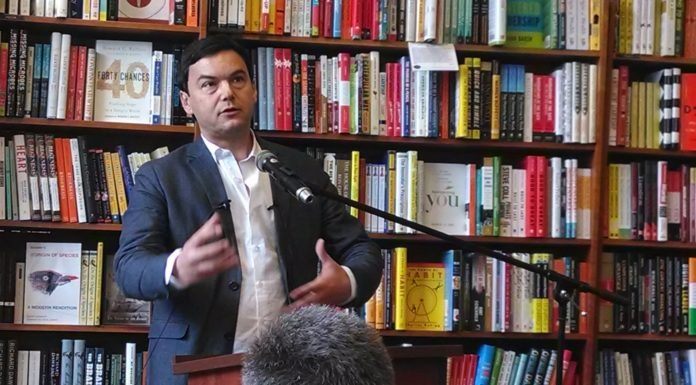Asher Schechter in Pro-Market:
 Inequality is neither economic nor technological; it is ideological and political.” Thomas Piketty’s latest book, Capital and Ideology, is a 1200-page tome chock-full of facts, figures, policy proposals, and digressions that defies easy categorization, but its main argument can be best summed up by its opening line. Piketty’s latest is the long-anticipated follow-up to his bestseller Capital in the Twenty-First Century, which became an unexpected cultural phenomenon when its English translation came out in 2014. It is twice as long and much broader in scope, providing a sweeping historical overview of how inequality has been driven and reinforced by ideological and political decisions throughout history.
Inequality is neither economic nor technological; it is ideological and political.” Thomas Piketty’s latest book, Capital and Ideology, is a 1200-page tome chock-full of facts, figures, policy proposals, and digressions that defies easy categorization, but its main argument can be best summed up by its opening line. Piketty’s latest is the long-anticipated follow-up to his bestseller Capital in the Twenty-First Century, which became an unexpected cultural phenomenon when its English translation came out in 2014. It is twice as long and much broader in scope, providing a sweeping historical overview of how inequality has been driven and reinforced by ideological and political decisions throughout history.
It is a startlingly ambitious book, even more so than its predecessor. Whereas Capital in the Twenty-First Century was firmly rooted in economics, Capital and Ideology’s overarching thesis draws on political science, history, and sociology. It is also, surprisingly, rather optimistic, as Piketty explores various historical examples to establish his argument that extreme inequality is not preordained.
More here.
